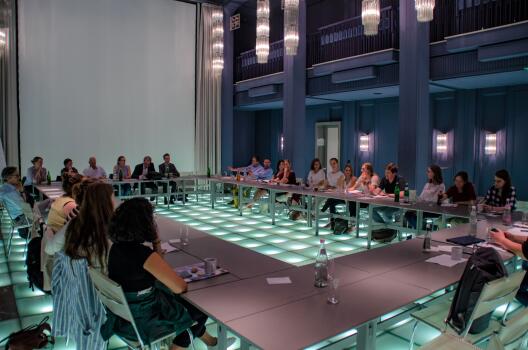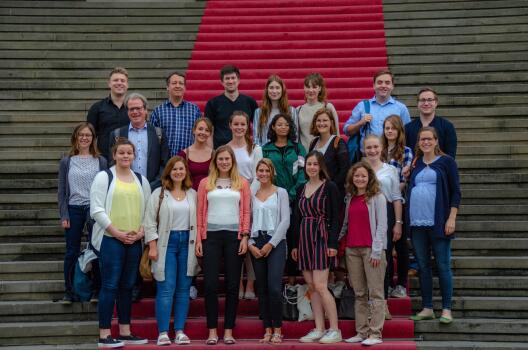“Religious policy goes future”
Arnulf von Scheliha on the political dimension of religious pluralism

Under the title “Religionspolitik goes future”, theology students from the University of Münster met with politicians and representatives of the parties’ youth organisations in Berlin. The workshop on religious policy was chaired by the Protestant theologians Prof. Dr. Arnulf von Scheliha and Uta Elisabeth Hohmann of the Cluster of Excellence “Religion and Politics”. Among the discussion partners were Konstantin von Notz, religious policy spokesman of the Green party, Bündnis90/Die Grünen, as well as representatives from the Federal Chancellery and the Protestant military chaplaincy. Topics included were the constitutional law on religion, the relationship between state and religions and the question of the need for reform in religious policy.
According to the participants, the highlight of the week was a workshop with representatives of the parties’ youth organisations. The aim was to take stock of the current religious-political situation from the perspectives of churches, the sciences and youth policy. The question of the need for reform in the German model of cooperation between state and religions was also discussed, as were confessional religious education, the financing of religious communities (church tax, state benefits), religious holidays, the protection of Sundays, dancing bans and church labour law

The theology students came to the conclusion that religious policy discussions in a pluralistic society should not be restricted to Christian groups. Rather, non-Christian communities should (and will in future) be included for an up-to-date interpretation of the constitutional law on religion. In addition, it became apparent that the parties’ youth organisations attach importance to the topic on the one hand, while on the other hand it is neglected in day-to-day political business, which is why there is still a great need for further dialogue. (exc/vvm)

